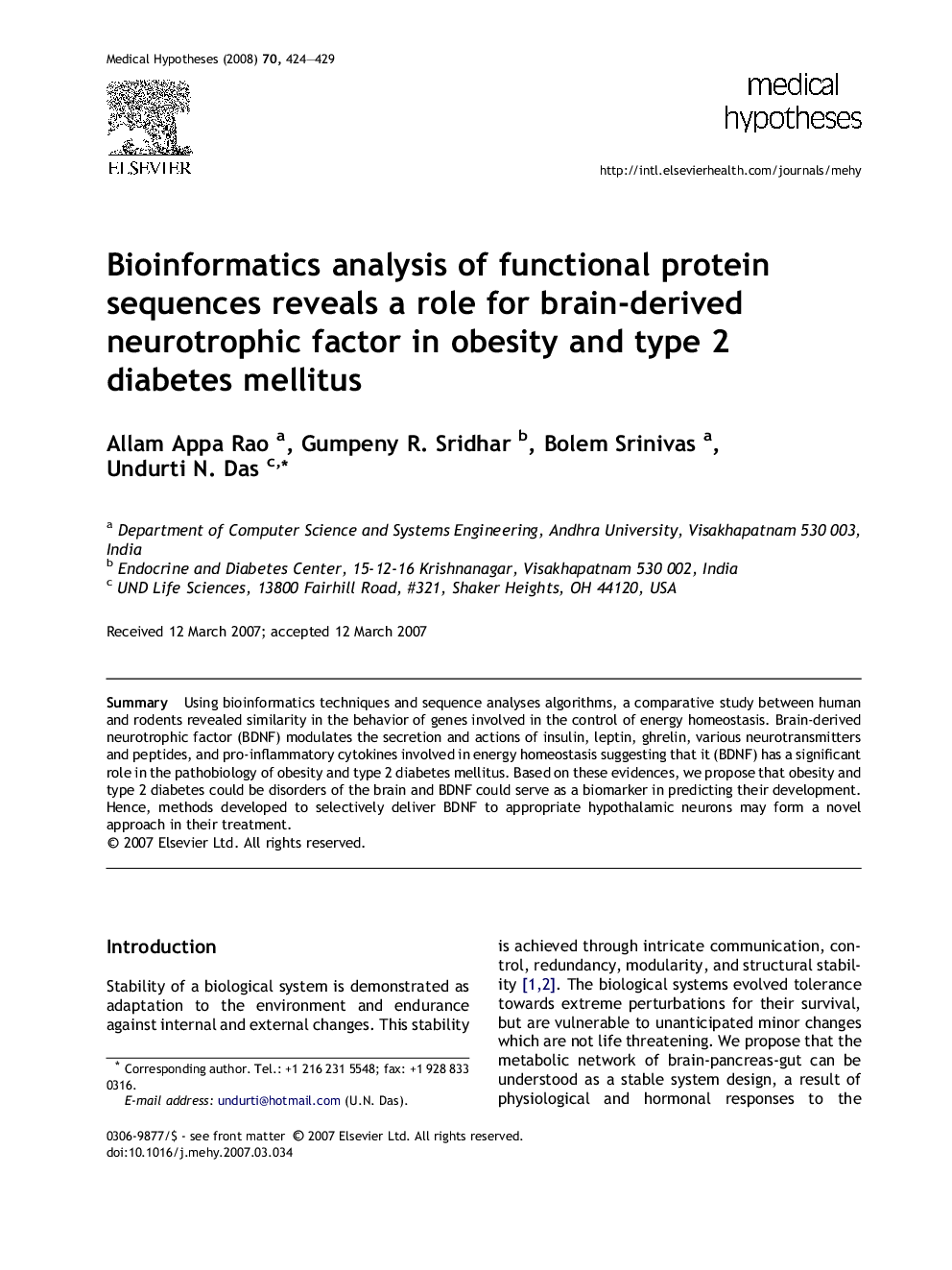| Article ID | Journal | Published Year | Pages | File Type |
|---|---|---|---|---|
| 2491930 | Medical Hypotheses | 2008 | 6 Pages |
SummaryUsing bioinformatics techniques and sequence analyses algorithms, a comparative study between human and rodents revealed similarity in the behavior of genes involved in the control of energy homeostasis. Brain-derived neurotrophic factor (BDNF) modulates the secretion and actions of insulin, leptin, ghrelin, various neurotransmitters and peptides, and pro-inflammatory cytokines involved in energy homeostasis suggesting that it (BDNF) has a significant role in the pathobiology of obesity and type 2 diabetes mellitus. Based on these evidences, we propose that obesity and type 2 diabetes could be disorders of the brain and BDNF could serve as a biomarker in predicting their development. Hence, methods developed to selectively deliver BDNF to appropriate hypothalamic neurons may form a novel approach in their treatment.
